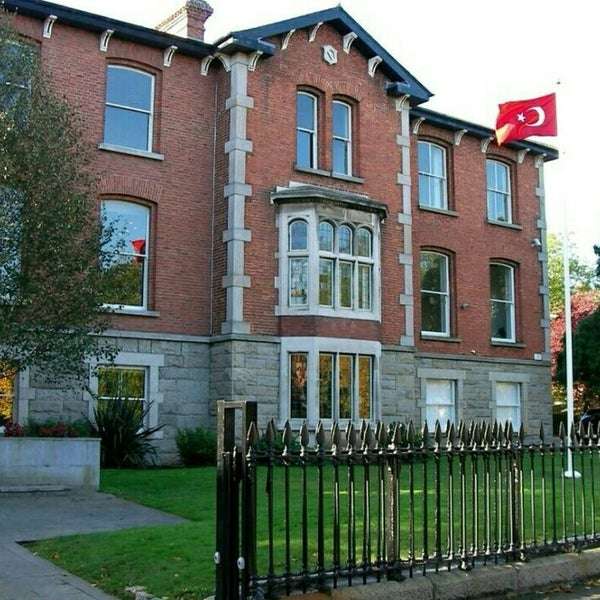by Miceál O’Hurley
ANKARA – 15 July 2016 began like most days. People rose, went to work, children played during their summer holidays and there were gatherings to continue the tradition of a family meal in the cooler air as the hot, noon-day sun began to fall. It was by all accounts an ordinary and unremarkable day. Nobody could have imagined what the fading, evening light would bring.
That evening was anything but ordinary and unremarkable. In one of those seminal moments all nations fear – a rising from within its own ranks, equipped with guns meant for the national defence of the country and her people was formed with a singular purpose – to overthrow the democratically elected Government which enjoyed the mandate of the people.
Unbeknownst to all but the plotters, months of clandestine planning was being put into play. With what time would demonstrate was a sophisticated, covert, financial network deployed by Muhammed Fethullah Gülen, the erratic, Turkish, theocratic dissident living in rural Pennsylvania, a small, but committed group of members of the Turkish Armed Forces and a deeply ingrained network of fellow dissidents at various levels of government and academic institutions, launched a coup d’état. Their efforts were futile. The coup ended with the Government and democracy still in place, but not before Turkey would mourn the deaths of hundreds of ordinary civilians, and thousands more who were maimed, who took to the streets in a patriotic display of sustaining democracy, liberty and Constitutional order in opposition to the attempted coup.
Today is annually observed as a national day of rededication to the memory of those who died and sacrificed in the 15 July 2016 coup attempt. It is, in many ways, an annual testament to the enduring values upon which Turkey was founded, a Republic, rooted in democracy and the rule of law, to serve the people of the Republic. On this 5th Anniversary it is worth recalling the events with the benefit of hindsight.
Coup Began with Tanks, Helicopters and Jets Attacking Civilians and Centres of Government
Beginning with the military participants in the coup closing the Bosphorus Bridge with commandeered tanks, the bloodletting was only to begin. Unarmed civilians who demanded to know why their military, erected for their national defence against external foes, was being deployed against the civilian population were summarily killed where they stood in protest at the bridge. From there, the coup leaders began to deploy troops throughout strategic points in Istanbul and Ankara.
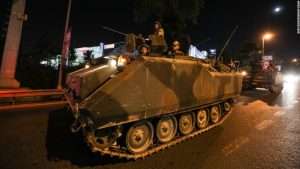
The Turkish people were dismayed to see their fellow citizens literally crushed under the treads of heavy tanks. Elsewhere, helicopters which had been stolen from legitimate military control were then deployed against the general populace, killing even more civilians. The blood lust of the coup was remarkable and was then indiscriminately wielded against civilians, all while claiming, as despots do, the Government was its target.
In the capital of Ankara, stolen Turkish Air Force jets began bombing the very heart of the Government – the very seat of the democratically elected representatives of the people. The Grand Assembly (Parliament), which has stood as a beacon of Constitutional guarantee since the founding of the Republic of Turkey in 1923, was bombed by jets flow by coup participants. In yet just one of a plethora of contradictions to their claim to be acting for the good of the people of Turkey – jets meant for the defence of a Government – sustained by a mandate from the people of Turkey – were being deployed against the very building in which the representatives elected by the people sat at their behest.
Assaults against the Government were not confined to Parliament. In a demonstration of wanton abandon, the residence of the President of Turkey, Recep Tayyip Erdoğan, was bombed, with his family and household staff, private citizens, inside. And, in a reckless act directed against law and order, the Ankara Policy Headquarters was also bombed by commandeered military jets flown by coup participants. The Gülen led plotters sought to destroy the very mechanisms of civil society, democracy, law and order throughout Turkey.
Disenchantment and Violence – Incompatible With Democracy
To be clear, the Republic of Turkey, as democracy, is imperfect. All democracies are, if healthy, participants in an ever evolving exercise in the betterment of governance in service to their people. Perfect Democracy as a goal may be unattainable, but the process is worthy and natural to the human condition. Turkey, like all young democracies, struggles with illiberalism and naturally continues to struggle with its history and future and forever evolving into a more just and good society All democracies follow this path.
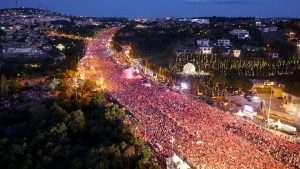
As understanding as I have been on the topic of democracy in action, I have often been a fair, and even at times fierce, critic of Turkey, sometimes vociferously shouted down by members of its political class. Yet even a critic must fairly admit that Turkey is undeniably a functioning, multi-party democracy. At least 5 parties routinely gain at least 10% of the vote and many other parties that garner less. All parties take part in an energetic and capable democratic opposition. Such Republics, secular in construction with robust democratic systems and a strong history of Constitutional underpinning, as has Turkey, provide ample opportunities for dissent and electoral opportunities to law abiding, non-violent citizens and parties. The coup, therefore, was a shocking event to the nation and international observers in both its scope and brutality. Rarely does dissent in a deeply rooted, democratic nation arise to the point of armed insurrection from a small, but significant counter-movement.
Given the deep support for the democratically elected Government (even parties in opposition felt the attack was upon Turkey’s democratic institutions – not just the leading Justice and Development Party – AKP) it was unsurprising then that when President Erdoğan called on the people, tens of thousands of unarmed civilians poured into the streets to protect Turkish democracy. This included its legitimately elected President, Government and Opposition Parties. Despite the coup arising in its ranks, the vast majority of the armed forces stood by the people. Taking a firm stand against those in their ranks committing treason, the military stood firm against the plotters who sought to bring the Republic of Turkey to an end.
In this history of democracy, each nation, in its turn, is invariably challenged by those who would render the Constitution of their Republic worthless while simultaneously claiming to defend it. For Turkey, this occurred on 15 July 2016. And, just as history records those dark days and the inhumane killing of civilians by the plotters, it equally preserves for posterity the stories of the ordinary women and men who rose to the occasion, often armed only with their voices and presence, and thereby helped preserve the democratic tradition entrusted to them by previous generations who also purchased their liberty and guaranteed democracy through pain and self-sacrifice.
Events of 15 July 2016 Considered
15 July marks the day of the bloodiest coup ever attempted in Turkish history. It was not the product of a dissatisfied junior-grade military officer and his opportunist colleagues. The coup bore all the hallmarks of incredible sophistication, significant covert financing and an anti-democratic thirst for power. Those who undertook to carry out the plot failed, or simply did not care about the distinction between power and authority. Admittedly, they wielded great power, so much so that some 251 Turkish people died by their hands and over 2,000 more were seriously wounded, still today bearing the haunting scars of that ignominious day.
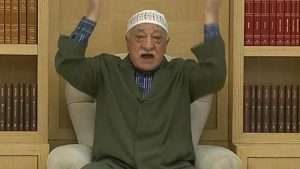
In the end, those who took part in the coup were romanced by what the facts now bear out were the false promises and ideology of the Fethullah Terrorist Organisation (FETO). FETO, like others before them throughout human history, are steadfast in refusing to understand that power may give them the ability to do something – but without the will of the people of Turkey – they utterly lack the inherent authority to act on their behalf and as such resort to attempting to rule at the end point of a gun. For terrorist who seek power, democracy is not a value – it is an obstacle.
Today, the threat FETO represents endures. Having proven their willingness and ability to blend in to democratic institutions in order to gain power, undermine democracy and ready themselves and others to overthrow the Government, it is not surprising that Turkey has been relentless, if not ruthless in pursuing the investigation and prosecutions of participants, both active and passive, in the bloody coup attempt of 15 July 2016. A Government, legitimately elected by the people in fair elections, has a responsibility to be ever vigilant against all threats, foreign, and at times, domestic. To be otherwise would be an abdication of the responsibility entrusted to them by the people and enshrined in their Constitution.
Advanced Democracy Isn’t Easy
Today, the challenge for Turkey is that which confronts every democracy that survives a coup. History is replete with examples (many recent) that suppressing a coup, though incredibly costly, painful and inevitably resulting in the senseless deaths of civilians and often democratically elected leaders, is by contrast undemanding when compared to the challenges of preserving a secular, democratic, civil society rooted in Constitutional guarantees that protect its citizens against the excess of Government.
In the days, weeks and months following the coup there was, understandably, significant outrage in the world media that Turkey was being too heavy-handed in rooting out participants and supporters of the coup. Arrests were widespread. Academics and civil servants were terminated from their posts. Military personnel were dismissed. Considered in hindsight, and noting the participation of law enforcement officers, military personnel and civil servants in the insurrection at the United States Capitol on 6 January 2021, Turkey’s response no longer seems unreasonable but rather speaks to the extent of the plotters organisational network designed to bring to an end the Republic of Turkey.
Still yet, many ill-informed critics and pundits simply continue to portray the coup as a power struggle between two former friends and rivals, President Recep Tayyip Erdoğan and former academic and Muhammed Fethullah Gülen, a cleric with a cult-like following who lives in self-imposed exile in the United States. In this, I think the record will ultimately show the opinions of doubters of Gülen’s role in the coup are misplaced in their beliefs.
Turkey’s Problems Go Beyond Gülen – Yet He Poses an Existential Threat to the Republic
Fethullah Gülen is by no means the solitary and defining existential threat to the Turkish State. Nor is he the leading threat to President Erdoğan. He is, without a doubt, a continued and looming threat to democracy in Turkey. There are undoubtedly other issues which Turkey must confront that have nothing to do with Gülen. Attempts to lay all of Turkey’s faults and problems at his feet are unworthy. Yet, downplaying the real and present danger he continues to engender for Turkey would prove a costly mistake.
It is worth noting that each and every member of the parliament, the Turkish Grand National Assembly, each remained steadfast in their resolve to bring Fethullah Gülen to justice. To whit, there was a unanimous Joint Declaration issued during an extraordinary meeting of the Parliament making clear the inter-party resolve for the people of Turkey to see justice achieved.
By contrast, Gülen has steadfastly refused to defend himself in a court of law. Relying on an expensive public relations team he instead relys on co-opting sympathetic rights organisations to issue generalised calls to oppose his extradition to Turkey. While refusing to stand before the law, Gülen defends himself by simply emailing self-serving, un-challenged, sui generis statements professing his sense of victimhood to media outlets like the Wall Street Journal and NPR.
Turkey’s Indelible Responsibility to Its People and Their Constitution
And therefore, as a State, committed to Republican values, rooted in law and justice, as formed by its Constitution, Turkey faces the august challenge of proving its case in a court of law. That must begin with giving Gülen the full assumption of innocence before the bench. Turkey has offered this. The Constitution guarantees this. Vindication is available to Gülen in the specified format agreed by the people of Turkey and valued by the democratic tradition – a court of law.
However, as long as Gülen refuses to submit to examination by prosecutors he knowingly continues to deal a blow against Turkey and equally deprives the people of Turkey of seeing justice done. The people of Turkey, upon whom the coup was launched by attacking their democratic institutions, deserve to see their custodians of the law of presenting such evidence it has that would either prove his guilt or exonerate him altogether and having it adjudged in a fair and impartial manner according to the law. Inherent in that process is the fundamental idea that prosecutors are not empowered to gain conviction, but find the truth. Only when this occurs will we ultimately be able to test Turkey’s commitment to justice, democratic values and its membership in the civilised world.
Was the Coup a Path to Consolidating Power for Government – No
As to the claim that President Erdoğan is a tyrant and supra constitutional authoritarian, as Gülen claims? No such accusation has been supported by the record.
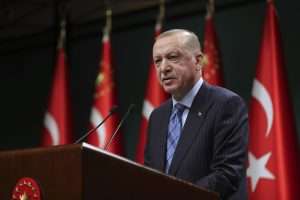
Turkey ended its State of Emergency following the coup and, unlike many other leaders, President Erdoğan did not seek to exploit or transform it into a consolidation of power in the hands of a dictator as too often happens. This is remarkable. Given the extent, depth and lavish funding of the coup, many leaders would reject the better angels of their being and act to consolidate power in the deluded belief that it was necessary to protect the State. Instead, President Erdoğan and the Grand Assembly acted to end the State of Emergency and restore normal democratic functions as quickly as they could. Such are not the acts of despots or dictators – but of people committed to democracy.
Moreover, acting upon the advice of the Council of Europe, Turkey empanelled an Inquiry Commission on State of Emergency Measures to address the complaints of affected individuals. To date, the Commission has received some 126,674 applications. The Commission has already delivered at least 115,130 decisions, with 14,072 of those claims being accepted. For those whose claims may have been denied, domestic legal remedies remain available to against any decisions of the Commission. The Inquiry Commission has been recognised by the European Court of Human Rights (ECHR) who has opined that it provides an effective domestic remedy in law. In this, Turkey undertook yet another demonstration of their commitment to the rule of law again – yet again defying their critics and further undermining the supposed necessity of any coup.
Epitaph and Analysis
In the final analysis, Turkey faces the same conundrum as does the United States. Both seek to hold those accountable for an attempted coup (Turkey on 15 July 2016 and the United States on 6 January 2021). Both seek to do so within the confines of the law and as such, please few, even while acting in response to their Constitutional duties. And, as it should be, the presumption of innocence must continue to rest with the individual. The righteousness of the State carries the burden of proof.
Those Republican Party supporters of the insurrectionists who violently assaulted the US Capitol on 6 January, causing death and destruction, have a vested interest in avoiding the scrutiny of the Select Committee set up by the House of Representatives to look into the attempted coup. Their ability to spin their position, mislead people and in many ways assure their future viability, relies almost entirely on the truth never seeing the light of day in a forum where evidence can be transparently and fairly scrutinised.
The same is true for Turkey. As long as Gülen and his followers avoid accountability and scrutiny for masterminding the 15 July 2016 coup, and remain free to challenge the factual narrative, they sustain themselves by illicit means. Gülen and his followers do so to the detriment of the Government which is empowered and answerable to people of Turkey.
Albeit, as with the attempted coup and insurrection at the US Capitol on 6 January 2021, the truth of 15 July 2016 will eventually come out. It always does. No matter how long proponents of either failed coup attempt to shield themselves from the piercing light of justice by refusing to participate in any public, transparent, fact-finding exercises, be it before Congress, Parliament or a Court of Law, in the end, the truth always becomes known.
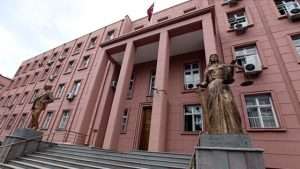
Only one thing remains certain at this time – given Gülen’s age and health, and his extensive financial resources (which are reportedly under investigation by the FBI), and as long as he makes himself aloof from the long arm of justice, all while the United States refuses to accede to extradition requests, Gülen will continue to undermine democracy and the rule of law in Turkey by doing as he has always done to date (and to which all failed coup leaders do in exile) claim themselves to be victims and deny their responsibility for the lives lost and damage done. In the case, strong information is that because of the coup of 15 July 2016, Gülen must be held to account for the murder of some 251 of his fellow countrymen and women and more than 2,000 other Turkish people who live with horrific wounds and crippling psychological trauma to this day.
Gülen deserves his day in court and he should make it possible. The Turkish people deserve to see the law in action with the expectation of all the protections of the Constitution being observed. Turkey’s Government deserves to discharge its responsibility to its people by being able to present its case and have it challenged by evidence and adjudged by a fair and impartial judiciary with the power of judicial review and appeal. Most certainly the dead victims of the coup, no longer able themselves to cry for justice at the bar, deserve to have the prosecutors present their case. Turkey and the world community should collaborate to make this happen.
In the meanwhile, the justice that awaits the patriot dead of Turkey who turned-out on 15 July 2016 to defend their society, their democracy, their country and their Constitutional Government, remains aloof. It is a soothing salve – yet not a healing one – that allows the Turkish people to take comfort in celebrating the lives and sacrifices of their patriot dead and wounded while sharing in the consolation that they rose to the occasion to preserve the democracy entrusted to them through the arduous sacrifices of generations past. But only justice will allow the deep wounds and loss to heal.



































